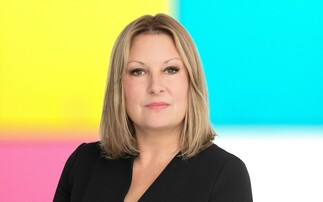Jessica List looks at flexible expression of wishes in her latest case study for RP
The Situation
Graham’s client Bryony has asked if they can meet to discuss the expression of wishes on Bryony’s SIPP. Bryony is 76 and divorced. Her current expression of wishes names her only son, David, as her beneficiary. David is 46 and self-employed. His business has been struggling for several years, but he believes it is on the brink of a turnaround. David’s two children, Hannah and Tom, are about to finish university and don’t yet know what to do next.
Bryony’s primary aim is still to help David, if he should need the support. However, if his business does become a success and he does not need the money when Bryony dies, she and David would both prefer it if at least some of the money goes to Hannah and Tom. Bryony is aware that the preferred death benefit option for all three of them is likely to be beneficiaries’ drawdown.
Bryony will aim to keep her expression of wishes updated as and when her family’s circumstances change, but she is worried about what might happen if she died before being able to update it. She wants to ask Graham if expressions of wishes can be flexible enough to reflect her situation.
Graham explains that if Bryony leaves her expression of wishes as it is, it could create a problem if David was to turn down some or all of the benefits and ask for them to be paid to Hannah and Tom instead. Bryony’s expression of wishes isn’t binding, so there wouldn’t be any problem with the provider paying out to beneficiaries other than David. However, in this situation, the pension rules would only allow the provider to offer Hannah and Tom lump sum death benefits. Graham explains that in order for a beneficiary to be eligible for beneficiaries’ drawdown, one of the following conditions must apply:
- The beneficiary is classed as a dependant of the deceased under HMRC’s definition
- The beneficiary was named on the deceased’s expression of wishes
- The beneficiary is receiving death benefits in a situation where there are no surviving dependants and no expression of wishes in place.
If Bryony left her current expression of wishes in place and David turned down some of the benefits, neither Hannah nor Tom would meet any of these conditions.
However, if Bryony also names her grandchildren on her expression of wishes, this problem goes away and Hannah and Tom would also have the option of drawdown. Bryony asks how this would work – she is concerned that this would mean that some of the funds have to go to her grandchildren, even if David is in greater need of the money.
Graham explains that Bryony can name Hannah and Tom as ‘alternative’ beneficiaries. She can ask her provider to only consider paying out to them if David turns down some or all of the benefits, or if he dies before Bryony. Graham will check whether Bryony’s provider’s expression of wishes form caters for this kind of structure; if not, she should be able to write her wishes as a letter explaining the situation and what she would like to happen. Graham confirms this is normally possible as long as the letter doesn’t ask for anything that isn’t possible within the legislation or the pension provider’s own rules.
The Results
Bryony updates her expression of wishes to name David as the main beneficiary, and asks her provider to consider splitting any funds not taken by David equally between Hannah and Tom. Bryony has peace of mind that should anything happen to her before she is able to update her expression of wishes, her family can still benefit according to her wishes.
Jessica List is pension technical manager at Curtis Banks











